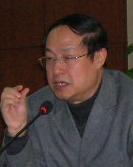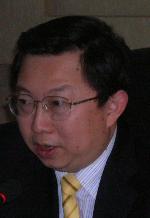|
"I am personally optimistic about the prospects of China-ASEAN economic relations in 2007," said Lu Jianren, Vice Director of the Centre of APEC and East Asia Cooperation Studies, Chinese Academy of Social Sciences on January 10. He was speaking at a seminar entitled "Reviews and Prospects of China-ASEAN Relations 2006-07" in Beijing.
Several scholars and experts nationwide attended the seminar co-organized by China-ASEAN Business Council (CABC) and the China Institutes of Contemporary International Relations (CICIR), ahead of the rescheduled 12th ASEAN Summit and the 2nd East Asia Summit that will be held between January 13 and 15, 2007 in Cebu, the second-largest city of the Philippines.

According to Lu, the strength of China-ASEAN ties was best displayed at the 3rd China-ASEAN Expo held in Nanning, southwest China last October. Some 30 out of 44 signed projects between China and ASEAN member states were Chinese investment abroad, with the total value standing at US$ 2.67 billion.
Lu said a relatively stable world economy, rapid growth in world trade, stable growth in East Asia, China, and ASEAN member states and the decline in world oil prices augured well for the further development of China-ASEAN economic relations. The "unfavorable factors" such as bird flu, natural disasters and terrorist activities "will be overwhelmed by the favorable ones, so I am personally optimistic about the prospect of China-ASEAN economic relations in 2007, "Lu said.

Besides reviewing relations in 2006, Xu Ningning, Deputy Secretary General of CABC, raised "four co-operations" in his speech How to Establish a China-ASEAN Free Trade Area with High Quality.
"The economic relation always plays an important role in China-ASEAN relations. Establishing a China-ASEAN Free Trade Area (FTA) is the final destination of both sides. Therefore, I have four suggestions for this. Firstly, the fundamental principle for FTA should be 'mutual and beneficial cooperation' with intentions to get a win-win outcome. Governments down to enterprises should give it careful consideration. Secondly, 'cooperate pragmatically' means to nurture economic ties on the basis of strong ties in the political sphere between China and ASEAN. Thirdly, foster 'comprehensive cooperation' ranging from electronic and hi-tech products to finance, investment and transportation. Finally, 'cooperate with creativity' to create related and new industry chains through the realization of trade, for instance, from the United States to ASEAN member states because of the tariff-free policy in FTA," said Xu.
Having just returned from an academic research trip, Professor Zhang Xizhen with School of International Studies, Peking University, shared his firsthand experience in Thailand, and presented an in-depth analysis of the future of ASEAN. In line with the current Chinese foreign policy, Professor Zhang encouraged the government to "expand and deepen relations with Malaysia and Viet Nam with preconditions that continue to deepen bilateral ties with Thailand and Indonesia."

As one of the co-organizers, Zhai Kun, Director of Southeast Asian and the Oceanian Studies of the CICIR, examined China-ASEAN relations within global, regional, bilateral and domestic context. He also highlighted paradoxes that may affect the basic interests of China in each sphere, Sino-US relations and Sino-Japanese relations, for instance.
On January 10, Minister of Foreign Affairs Li Zhaoxing arrived in Cebu to attend ministerial and other bilateral meetings ahead of the formal ASEAN and East Asia Summits. Chinese Premier Wen Jiabao will also set off for Cebu on January 13 to attend ASEAN plus China ("10+1") Summit, the 7th East Asian Leaders' Meeting (China, Japan and South Korea ), the 10th ASEAN plus China, Japan and Soth Korea ("10+3") Summit and the 2nd East Asia Summit with 10 ASEAN member states, Australia, Japan, South Korea, New Zealand and India. On January 16, Wen Jiabao will pay a state visit to Manila, the capital city of the Philippines at the invitation of President Gloria Arroyo.
With the theme "One Caring and Sharing Community", the Cebu ASEAN Summit of 2007 will discuss topics such as transnational trade, counterterrorism, and the ASEAN Charter draft, according to the summit's official website. This is the second gathering of the 10 ASEAN member states within three months following the Commemorative Summit Marking the 15th Anniversary of ASEAN-China Dialogue Relations in October 2006 in Nanning, southwest China.
|
